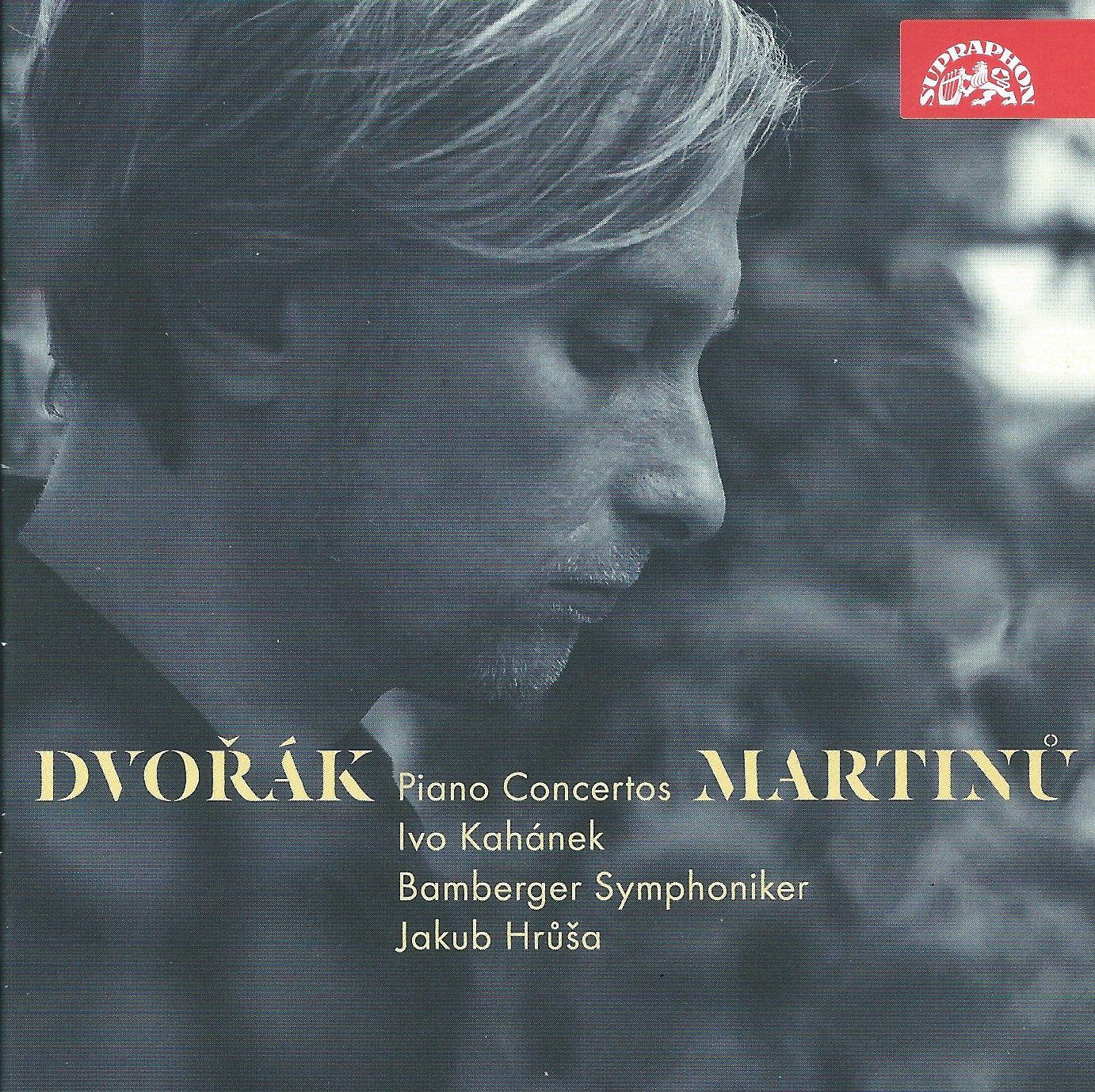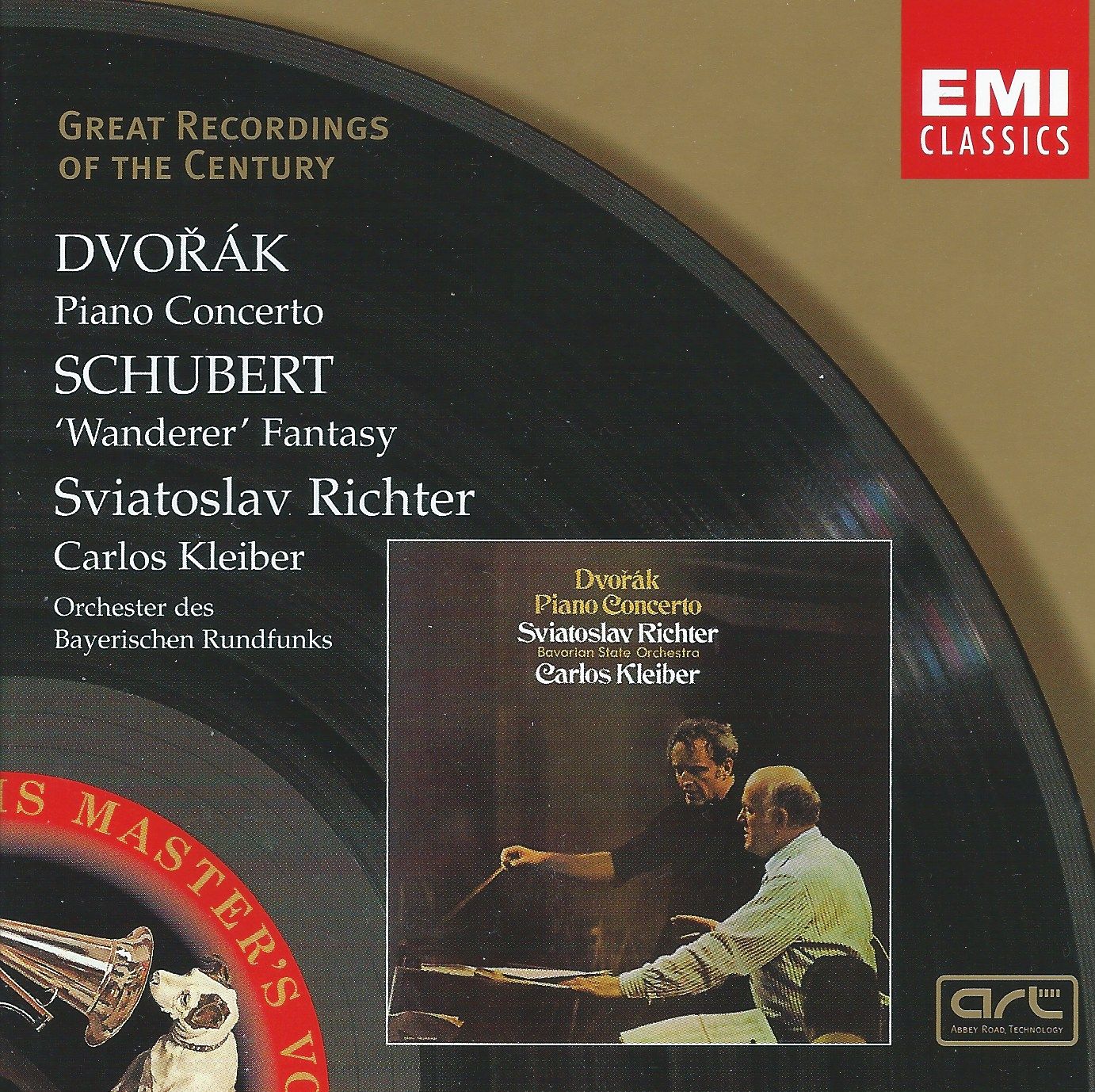Exploring Dvořák
Where do you go with Dvořák after the "New World" Symphony or the Slavonic Dances? Try the Piano Concerto.

Where do you go with Dvořák after the "New World" Symphony, the Cello Concerto, the Slavonic Dances and, perhaps, the ever-popular "Song to the Moon" from Rusalka?
And if you don't know the last, prepare yourself: this is great singing from Gabriela Beňačková with the Czech Philharmonic Orchestra in its heyday conducted by Václav Neumann:
Enjoy! Then perhaps be bold and listen to the rest of the opera ...
But getting back on track, there is more to Dvořák's concerto life than the Cello Concerto. His Piano Concerto has never really got the recognition it deserves, so step forward the young pianist Ivo Kahánek, with one of the Czech Republic's finest conductors, Jakub Hrůša and the orchestra he currently leads, the Bamberg Symphony (itself an orchestra linked with the old Czechoslovakia: check out the Wikipedia article for the full story).
There is so much beauty in Dvořák's Piano Concerto, written in 1876, it's rediculous;and the advantage of a modern recording (2017) allows that beautiful rich Czech orchestral sound to come through. The infectious joy of the finale is remarkable and really needs Czech players to bring out the sence of rustic dance. That, coupled with the beautiful slow movement and the powerful , extended, first, makes the piece and this performance a real winner.
For those that follow these things, Kahánek uses the new 2017 Bärenreiter score, which gives him that added touch of authority.
There has been one absolute classic recording of this piece previously, that by the Russian pianist Svatoslav Richter, Bavarian State Orchestra (Munich) with their very rich, upholstered sound under a conductor that some positively hero-worship, Carlos Kleiber. It is superb; but some may well perfer Kahánek and Hrůša's freshness ...

There is another much less well-known Richter performance, and it is this we'll share here as it gives the opportunity to see the Master in action with the Prague Symphony Orchestra under Václav Smetáček in 1966:
Now, Kahánek was due to come to London on August 12 to play the Martinů Double Concerto for two String Orchestras, Piano and Timpani, H 271, with the Czech Philharmonic Orchestra under their new Principal Conductor, Semyon Bychkov this summer. Sadly due to coronavirus, that will not the happening. Instead, we will have to refer to this disc instead to enjoy his Martinů, a performance of that composer's Fourth Piano Concerto, "Incantation" on the Supraphon disc. So, we move from 1876 (the year of Dvořák's Concerto) to 1956; quite a shift, but it turns out Martinů's piece is the perfect partner, acidic, virtuoso, dramatic and exciting. Martinů wrote the piece in New York, and one wonders if the more frenetic monements reflect that? Unlike the Dvořák, this is a live performance - January 19, 2019 at the Josef-Keilberth-Saal in Bamberg and it really is electric, seat-of-the-pants stuff.
Cast in two movements which last a total of around 20 minutes, it's a compact piece that demands careful attention, but rewards the listener in its real beauties of orchestration. The subtitle of "Incantation" comes from the idea of a "magic charm," and the composer is on record as stating that it was his aim to recreate thsi in music. If you want to try the piece, and played by Kahánek to boot, here's a Proms performance with the BBC Symphony Orchestra under the much-missed Jiří Bělohlávek:
So perhaps with all the uncertainty about traveling to the beautiful Czech Republic presently, perhaps we should travel in our imaginations instead. And Kahánek's disc makes a fabulous starting point ...
And if we're not moving on next to one of Dvořák's other concertos, let's stay with the piano and the radiant A major Piano Quintet, Op. 81, and spoil ourselves with the luxury casting of Sviatoslav Richter on piano again, here with the legendary Borodin String Quartet. Just listen to the golden sound of the Borodin Quartet's cello, Valentin Berlinsky, in the opening section:
